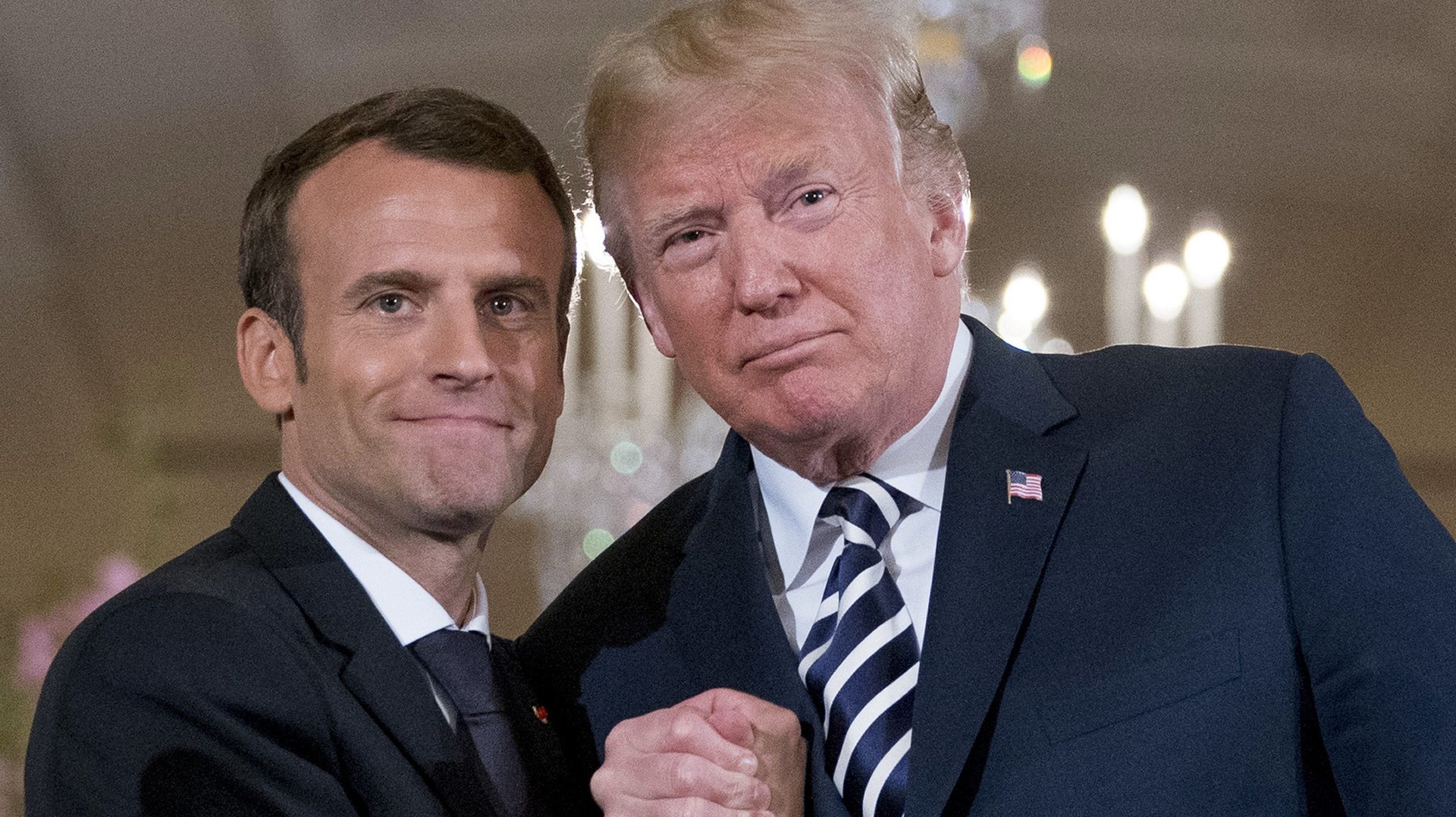Americans feel a burden to future-proof their jobs, while the French are relying on government
The popular narrative about the future of work is bleak. The sense is that many of us will be replaced by automated systems, drones, or people who are willing to work for less elsewhere. Only those with specific high-tech skills will survive. And some accounts of overturned lives have already shown these fears are not entirely misplaced.


The popular narrative about the future of work is bleak. The sense is that many of us will be replaced by automated systems, drones, or people who are willing to work for less elsewhere. Only those with specific high-tech skills will survive. And some accounts of overturned lives have already shown these fears are not entirely misplaced.
But Harvard Business School professor Joseph Fuller says he has long questioned whether that story wasn’t also too simplistic; he suspected that people were optimistic about their ability to adapt to change. To find out exactly how middle-skilled employees are feeling about the future of work, he asked them, leading a survey with Boston Consulting Group that reached 11,000 workers in jobs that do not require a four-year degree, and 6,500 C-suite and senior business leaders in 11 countries.
The just-published results confirmed his suspicions: Employees see potential gains and losses in the forces changing work. For instance, they may fret about the gig economy, but many also hope to take advantage of it by earning extra income in a side hustle.
Workers also have faith that government and companies will step up with reskilling programs and funding to help them prepare for whatever comes next. Notably, however, attitudes about exactly who should be rushing to do this vary widely by nation. For instance, when Americans were asked “Who is most responsible for preparing employees for the future?” the majority (65%) of employees answered “I am,” while only 10% chose “the government.” Indeed, Americans were more likely than any other other group to claim personal ownership of this looming need.
By contrast, 32% of French respondents pointed to the government (the highest ratio in any country), while only 24% selected “I am.” (The possible answers were: The government; companies; “I am”, and “I don’t know.”)
Such results clearly reflect cultural norms and the economic and political structures in each nation. Why are Brazilians almost as likely as Americans to feel personally responsible for their future? Probably because they have little respect for governments and large organizations after years of corruption scandals, says Fuller.
Fuller wasn’t surprised that survey-takers in western European countries, where socialist-leaning political systems are the norm, skewed toward ranking the government as most compelled to lead this charge. In “more free-wheeling economies,” he adds, which value entrepreneurship, the results tended to reflect a belief in self-reliance. These include the US, Indonesia, and China, he says.
Employees in France (27%), Germany (26%), and in the UK and Japan (both 23%) ranked highest for placing the onus on companies to future-proof their jobs. Conversely, only 8% of Indonesian respondents made the same choice.
Comparing responses from C-suite executives to employees on the same question, Fuller says he’s concerned about the few places where there’s a mismatch of expectations. Indian employers are the only ones who said, as Fuller describes it, “Yeah, we own a big part of this.” He’d like to see more employers in other developing nations, where automation is changing the nature of work, feel the same pressure. “There is no spot market for that kind of labor, you have to grow your own,” he says. “Employees should be seeing more commitment by employers, and employers should be expressing a higher amount of ownership for that task.” And governments in developing countries, especially, must be thinking about education policies that would best align with economic goals, he argues.
The survey also showed that C-suite executives did not make great distinctions between the level of importance of different forces facing their individual industries, such as employees’ growing expectation of finding purpose at work, shifting demographics in the workforce, and technology that would replace or augment jobs people do now. Curiously, however, they also felt their companies would be ready to deal with these challenges, and stay competitive, when the time came. “I must admit, as a professor at a business school, that didn’t make make me feel altogether confident,” Fuller says. “Between 79% to 90% of executives are saying ‘We are well prepared.’ Well, heck, earlier you were saying you didn’t even know what the impact was going to be.”
Given the rate of disruption across every industry, Fuller says he’s afraid many corporate leaders are naive to feel optimistic about their ability to move quickly and avoid the fate of brands like Sears or Blockbuster down the road. Operations managers, he notes, were far more pessimistic. But when you’re a CEO or CTO, he admits, “You don’t get paid to walk into a board room and say, ‘Well, gosh, I’m not prepared for this.”